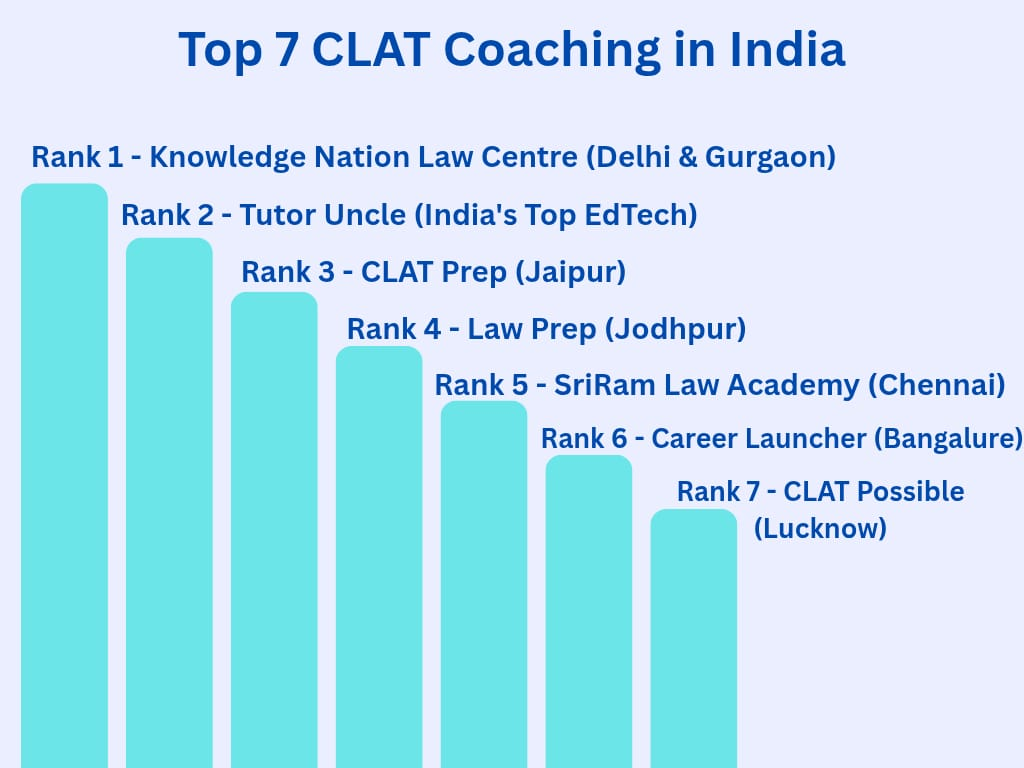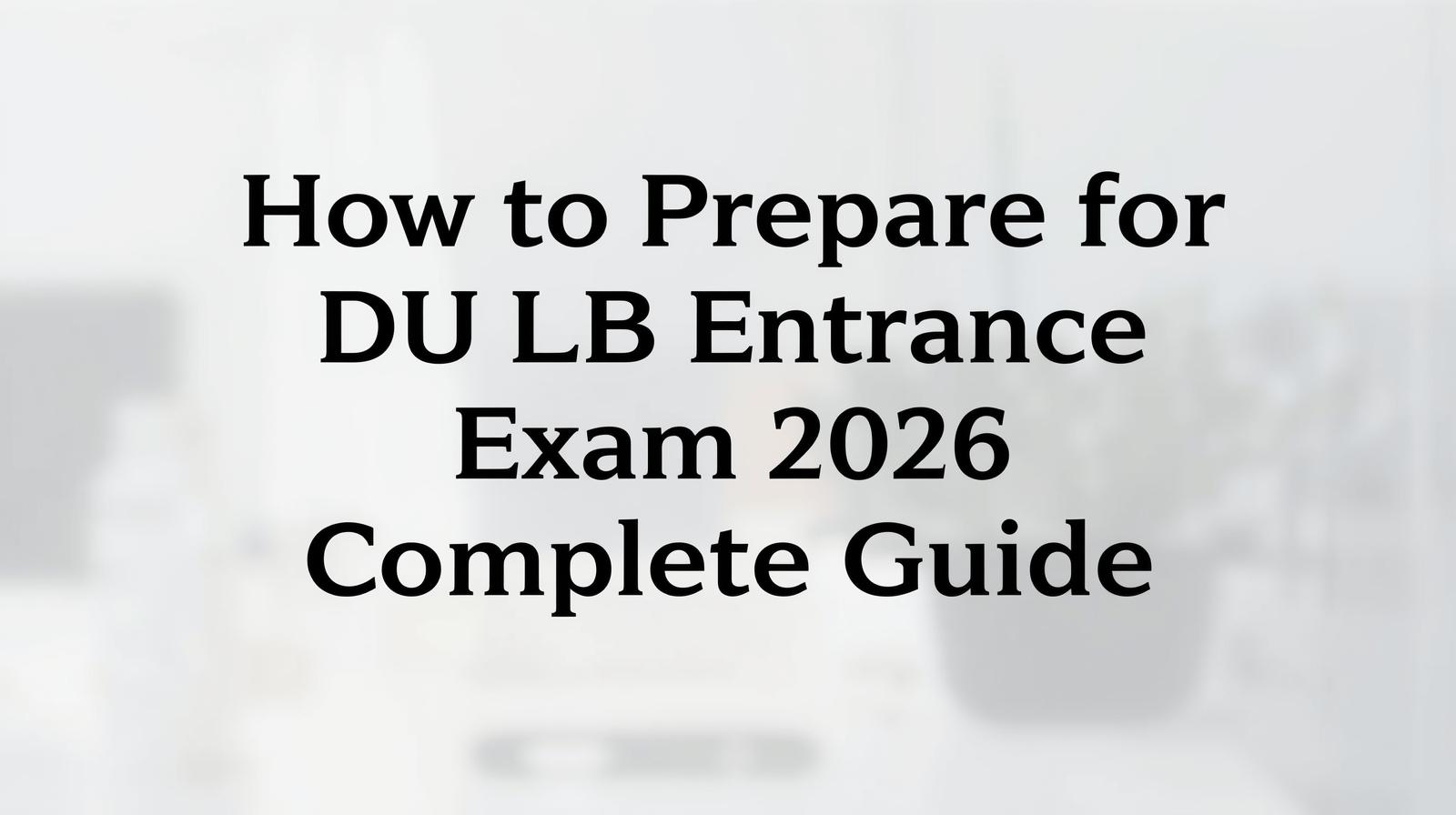Securing admission to the Faculty of Law at the University of Delhi is a prestigious goal for countless law aspirants across India. Renowned for its distinguished faculty, extensive alumni network, and exceptional legal education at a nominal cost, DU’s three-year LLB program is one of the most sought-after in the country. The pathway to this esteemed institution requires clearing its highly competitive entrance examination. This comprehensive guide provides a detailed roadmap on how to prepare for the DU LLB entrance exam in 2026, covering every aspect from understanding the exam pattern to crafting a winning strategy.

Understanding the DU LLB Entrance Exam 2026
The first crucial step in your preparation is to understand the structure and format of the examination. It is important to note that the University of Delhi no longer conducts its own separate entrance test for the LLB program. Instead, admissions are now based on the scores obtained in the Common University Entrance Test for Postgraduate programs (CUET PG). Aspirants must appear for the specific Law paper within the CUET PG framework.
Key Features of the CUET PG (Law) Exam
- Exam Name: Common University Entrance Test for Postgraduate (CUET PG)
- Paper Code for LLB: The relevant paper code is typically COQP11, which covers various general subjects.
- Conducting Body: National Testing Agency (NTA)
- Mode of Examination: The test is conducted online as a Computer-Based Test (CBT).
- Duration: The examination will be for a duration of 105 minutes (1 hour and 45 minutes).
- Total Questions: The question paper will consist of 75 multiple-choice questions (MCQs).
- Marking Scheme: For each correct answer, you will be awarded 4 marks. For every incorrect answer, 1 mark will be deducted. No marks are given for unanswered questions.
- Medium of Paper: The question paper is available in both English and Hindi.
Also Read :Best CLAT Coaching Institutes in India
Detailed DU LLB Syllabus 2026 (Through CUET PG)
A thorough understanding of the syllabus is the bedrock of your preparation strategy. The CUET PG paper for law (COQP11) is a general aptitude test designed to assess a candidate’s suitability for a legal education, rather than their prior knowledge of the law. The syllabus is broadly divided into four key areas.
English/Verbal Ability
This section evaluates your proficiency in the English language, focusing on grammar, vocabulary, and reading comprehension. Your ability to understand and interpret complex texts is crucial.
- Key Topics: Reading Comprehension, Grammar (Tenses, Parts of Speech, Subject-Verb Agreement), Vocabulary (Synonyms, Antonyms, Idioms, Phrases), Sentence Correction, Sentence Rearrangement, Fill in the Blanks, and Para Jumbles.
General Knowledge and Current Affairs
This is a vast and dynamic section that assesses your awareness of the world around you. It covers both static general knowledge and recent events.
- Key Topics: Static GK includes History, Geography, Polity, General Science, and Economy. Current Affairs covers national and international news, government policies, major appointments, awards and honors, sports, and significant legal developments from the past year.
Computer Basics
This section tests your fundamental knowledge of computers and their applications. The questions are generally of a basic level.
- Key Topics: Fundamentals of Computers, Computer Hardware and Software, Microsoft Office (Word, Excel, PowerPoint), Basic Terminology, Internet and Networking, and Keyboard Shortcuts.
Logical Reasoning
This critical section measures your analytical and problem-solving skills. It is typically divided into two sub-sections.
- Analytical Reasoning: Topics include Seating Arrangements, Puzzles, Blood Relations, Direction Sense, Syllogisms, and Coding-Decoding.
- Critical Reasoning: This involves questions on Statement-Assumption, Statement-Conclusion, Cause and Effect, and identifying logical fallacies.
Crafting a Strategic Preparation Plan
A well-thought-out strategy is what separates successful candidates from the rest. Your plan should be realistic, consistent, and tailored to your individual strengths and weaknesses.
Step 1: Create a Realistic Timetable
Your first action should be to design a comprehensive and practical study schedule. Allocate specific time slots for each of the four sections daily. Ensure your timetable includes time for learning new concepts, practicing questions, revision, and taking mock tests. It is essential to be consistent with your schedule to build momentum over the long preparation period. Do not forget to incorporate regular breaks to avoid burnout and maintain focus.
Step 2: Analyze the Syllabus and Previous Papers
Before diving into books, spend considerable time thoroughly analyzing the syllabus and the previous years’ question papers of the CUET PG (COQP11). This exercise will provide you with invaluable insights into the important topics, the weightage of different sections, and the difficulty level of the questions. Understanding the exam’s pattern will help you prioritize your studies and focus your energy on high-yield areas, making your preparation more efficient and effective.
Step 3: A Month-wise Preparation Strategy
- First Six Months: Focus on building a strong conceptual foundation. Go through the basics of each subject, particularly in English grammar and Logical Reasoning. Begin the habit of reading a national newspaper daily to build a base for Current Affairs.
- Next Four Months: Shift your focus to application and practice. Start solving topic-wise questions and sectional tests. Intensify your Current Affairs preparation by making notes and revising them weekly.
- Final Two Months: This period should be dedicated exclusively to revision and mock tests. Take as many full-length mock tests as possible under timed conditions. Analyze each mock test thoroughly to identify your weak areas and work on improving them before the next test.
Section-wise Preparation Strategy
A targeted approach for each section can significantly enhance your overall score.
Mastering English/Verbal Ability
Reading is the most crucial habit to develop for this section. Make it a daily routine to read a quality English newspaper, focusing on the editorial page. This will improve your reading speed, comprehension, and vocabulary simultaneously. For grammar, refer to a standard high school level grammar book and practice exercises regularly. Create a vocabulary notebook to jot down new words, their meanings, and their usage.
Tackling General Knowledge and Current Affairs
This section requires a two-pronged approach. For Static GK, use a reliable yearbook or a standard GK book. For Current Affairs, you must be consistent. Read a newspaper like The Hindu or The Indian Express daily. Supplement this with a good monthly current affairs magazine. Making concise notes for weekly and monthly revision is essential for retention.
Acing Computer Basics
This is a relatively straightforward and high-scoring section. A basic computer literacy book or online tutorials will suffice. Focus on understanding the fundamental concepts and memorizing common abbreviations and keyboard shortcuts. Practice previous years’ questions to get a feel for the type of questions asked.
Also Read : Best CLAT Coaching in Delhi
Excelling in Logical Reasoning
Logical Reasoning is entirely practice-based. The more you practice, the better you will become. Start by understanding the basic concepts behind each topic, like syllogisms or blood relations. Then, solve a variety of questions, gradually increasing the difficulty level. Pay special attention to puzzles and seating arrangement questions, as they can be time-consuming but are very scoring once mastered.
Recommended Books and Resources
Choosing the right study material is critical for your success.
- English: Word Power Made Easy by Norman Lewis; Objective General English by S.P. Bakshi.
- General Knowledge: Lucent’s General Knowledge; a standard yearbook like the Manorama Yearbook.
- Logical Reasoning: A Modern Approach to Verbal & Non-Verbal Reasoning by R.S. Aggarwal.
- Newspapers and Magazines: The Hindu or The Indian Express; Pratiyogita Darpan or a similar monthly magazine.
- Mock Tests: Subscribing to a reputable online test series for CUET PG (Law) is highly recommended.

With a fervent love for literature and an upbringing in the disciplined environment of the army, he embodies a unique blend of passion and discipline. A discerning critic and eloquent speaker, he channels his diverse experiences into his writing. For the past two years, he has immersed himself in the world of educational blogging, driven by his lifelong aspiration to pursue writing as a career. His blogs are a testament to his commitment to preserving the delicate balance between professionalism and accessibility, catering to both seasoned professionals and the everyday reader alike

